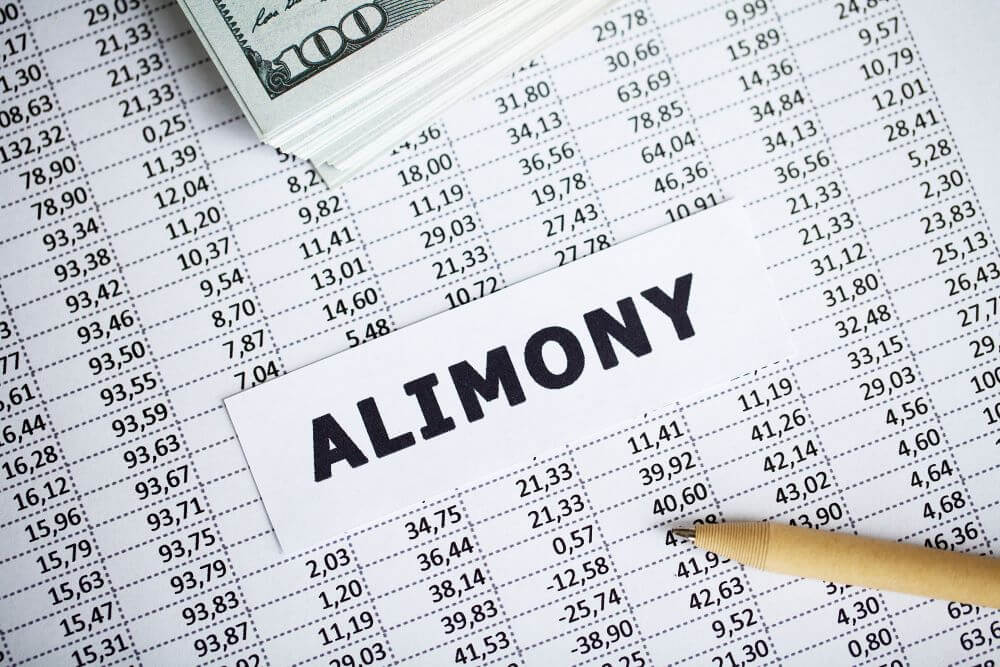How is Alimony Calculated in Pennsylvania?

In Pennsylvania, alimony refers to the financial support paid from one ex-spouse to another once their marriage ends and divorce is final. Every couple’s divorce and alimony arrangement will differ based upon their unique circumstances and the agreement they reach. Alimony is not calculated by a formula in Pennsylvania. Rather the court must weigh and consider 17 factors in determining if alimony is appropriate in any given case, and, if so, in what amount and for how long.
The 17 Alimony Factors in Pennsylvania
It’s important to keep in mind that despite all the factors laid out to simplify alimony award decisions made by courts, Pennsylvania laws do not automatically entitle either party to alimony. Courts will evaluate the following factors when deciding the type, duration, and amount of post-divorce alimony:
- Relative earning capacity of each spouse
- Age, physical and mental health of each spouse
- Sources of income of each spouse
- Inheritances of each spouse
- Marriage length
- Contribution to spouse’s education
- Children: whether earning capacity of the custodial parent is affected
- Standard of living during marriage
- Employment and education opportunities
- Property brought to the marriage
- Liabilities and assets
- Contribution as a homemaker during marriage
- The needs of both spouses
- Marital misconduct
- Tax effects of the alimony award
- Whether the supported spouse has property to meet financial needs
- Whether the supported spouse is capable of becoming self-supporting through employement
When Is Alimony Required?
Alimony will typically be awarded when a former spouse has demonstrated to the courts that he or she is unable to meet their needs without financial assistance from a spouse who can afford to pay it. Ultimately the courts will determine whether alimony is required and how much and for how long.
What Is the Difference Between Spousal Support and Alimony in PA?
Both spousal support and alimony pendente lite (APL) refer to temporary financial support paid to a spouse. Spousal support is paid after a separation but before a divorce is final. APL is a type of spousal support that is ordered to be paid during the divorce proceedings to the recipient spouse. In Pennsylvania, alimony refers to the financial support paid from one ex-spouse to another once their marriage ends and divorce is final.
Types of Alimony fter Divorce is final
The amount of post-divorce alimony payments varies in each case and is not calculated according to a formula.
- A rehabilitative alimony is a type of alimony that aims to provide financial support to a spouse for a specific period to help them become self-supporting or acquire the skills and education necessary for financial independence.
- A permanent alimony is awarded if a partner has a long-term disability or has never gained employment for the duration of the marriage.
- A lump sum alimony can be awareded instead of monthly payments or instead of property or other valuables that the couple has accumulated during their marriage.
Read more about alimony and spousal support options in the state of Pennsylvania.
When Alimony is Not Granted?
The court will assess if one spouse has a demonstrated financial need and if the other spouse has the ability to pay alimony. Alimony is generally awarded in cases where the spouses have unequal earning power and have been married a long time. Alimony may not be granted for a variety of reasons including a lack of financial need, adultery took place by the spouse requesting alimony, or the couple has only been married briefly.
Related: How To Regain Financial Independence After Divorce
Can Men Get Spousal Support or Alimony in PA?
In spite of shifting roles in the home, many people in Pennsylvania may assume that it will be the wives receiving alimony, spousal support or alimony pendente lite payments. But spousal support, alimony pendente lite and alimony have nothing to do with gender. Rather, they are based upon the earning potential of the divorcing couples and aims to address where there is an imbalance or unfair divide. After a separation and divorce, men who are eligible for spousal support, alimony pendente lite and alimony may use it to improve their earning potential or spend more time with their children.
Does Adultery Affect Spousal Support in PA?
Although you can no longer be sued or prosecuted for adultery in Pennsylvania, courts will consider adultery when determining if alimony is appropriate. Under Pennsylvania law, once a husband or wife is proven to have committed adultery, he or she is not entitled to receive spousal support. Adultery is generally not relevant in cases of alimony pendente lite. Adultery is a factor the courts consider when determining alimony, but it is only one of many factors and generally does not serve as the sole reason to grant or deny alimony. Adultery usually won’t affect child custody and visitation in a divorce, unless the unfaithful spouse’s relationship had or has a negative impact on the children.
Related:
- Adultery Laws PA
- No-Fault Divorce in Pennsylvania (2024 Updated Guide)
- Does “Fault” Matter in Divorce in Pennsylvania?
How Long Does Alimony Pendente Lite (APL) Last?
The purpose of alimony pendente lite (APL) is to help the lower-income spouse finance his or her living and legal expenses through the divorce. This is paid by the higher-income spouse. The APL obligation continues until the conclusion of the divorce case.
How Colgan and Associates can help you – Divorce Lawyer Free Consultation
Our team of trusted divorce attorneys at Colgan & Associates stand ready to assist with your family law matter, whether it involves spousal support, APL, alimony or another divorce-related issue. We proudly offer no-cost phone consultations to individuals hoping to better understand their unique situation and determine how we may be able to assist them. If you or someone you know is going through a divorce in Pennsylvania, please reach out to us today at (717) 502-5000.
